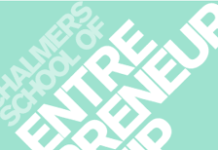Thank you Kieran Egan for putting me on the right track to the next step in my PhD thesis process. It took three years to find this turn in my personal roller-coaster. Egan eloquently argues here that trying to understand human learning only from a “human nature” psychological perspective is bound to fail. We need to consider the tools that bring the human mind to life, what he calls “cognitive tools”, or “cultural-cognitive tools”. So what are the tools I study? Well, two major cognitive tools boosting learning that are frequently used in entrepreneurship education are 1) the (giving) birth of/to a legal entity, and 2) the notion of creating (new kinds of) value for other people. Combined, this for example gives us the “start-up scene” or any variation of it. The minute you invite students to this cultural-cognitive life-world, and invite them to act in it as if it were theirs, it often resonates within them and every related disciplinary subject has a potential to spring to life, and give learning a completely new dimension. I have witnessed it myself, and my fellow alumni tell me the same story consistently.
1) The giving birth to a legal entity (potentially of a revolutionary kind) resonates with our desire to obtain (social) immortality by creating something that transcends ourselves, in an existentialism based way described by Sartre and others.
2) The desire to create value to other people also resonates with basic human desires, i.e. to be useful, quite well described by Emerson:
“The purpose of life is not to be happy. It is to be useful, to be honorable, to be compassionate, to have it make some difference that you have lived and lived well.”
Now, if we combine these two immensely powerful “cultural-cognitive tools” (1 and 2) and insert them into an educational context (and really make them work, which takes a lot of fine-tuning), it gives the life-changing and transformative learning experience that we can observe at the very few venture creation programs that exist around the world. But if we want to find the general implications for learning and education from these rare programs, we cannot escape, omit or disregard the powerful cultural-cognitive tools that surround this kind of programs, they are as important to consider as the human mind and brain driving the learning process. This is an immensely important point made by Kieran Egan. For which I thank him!



